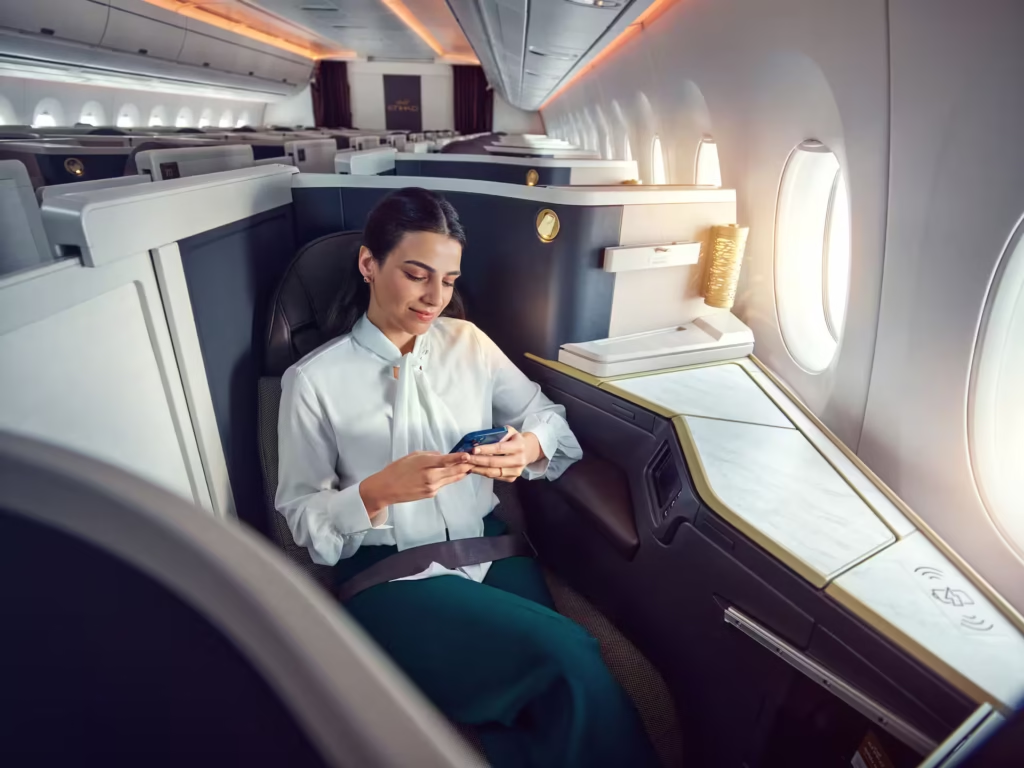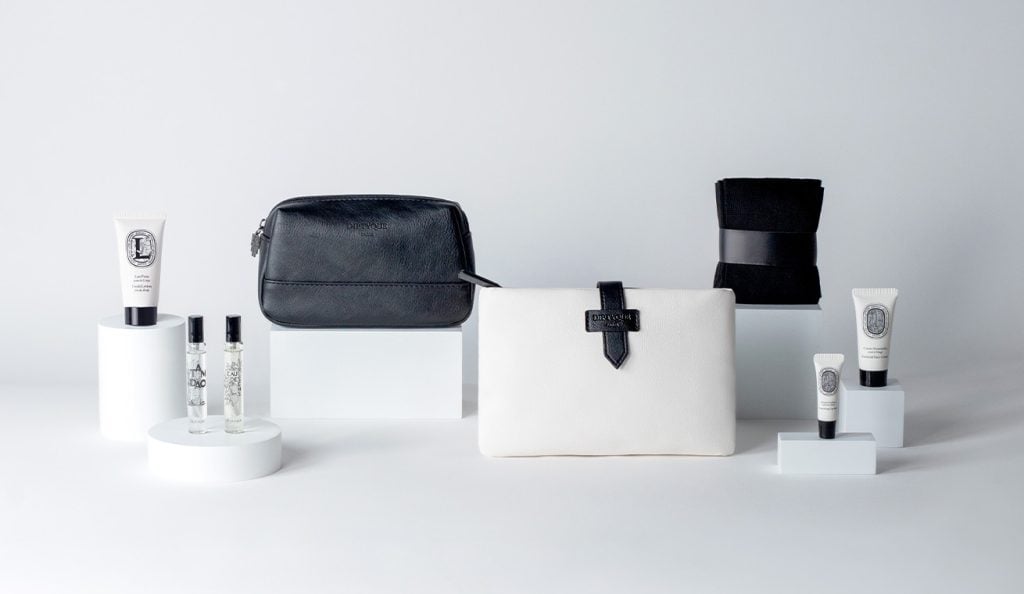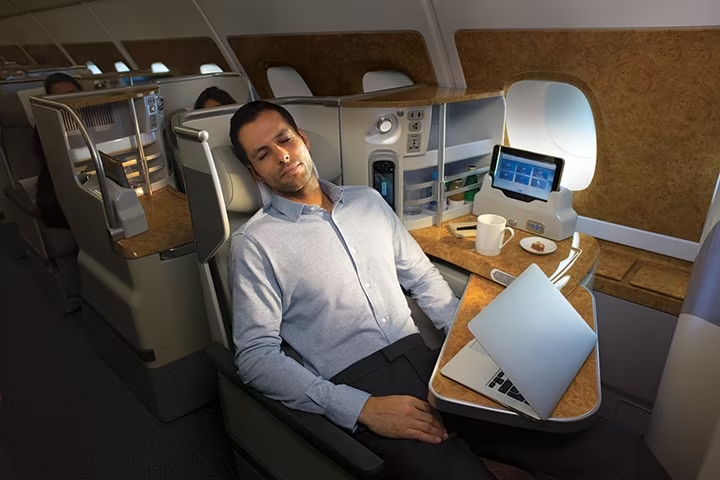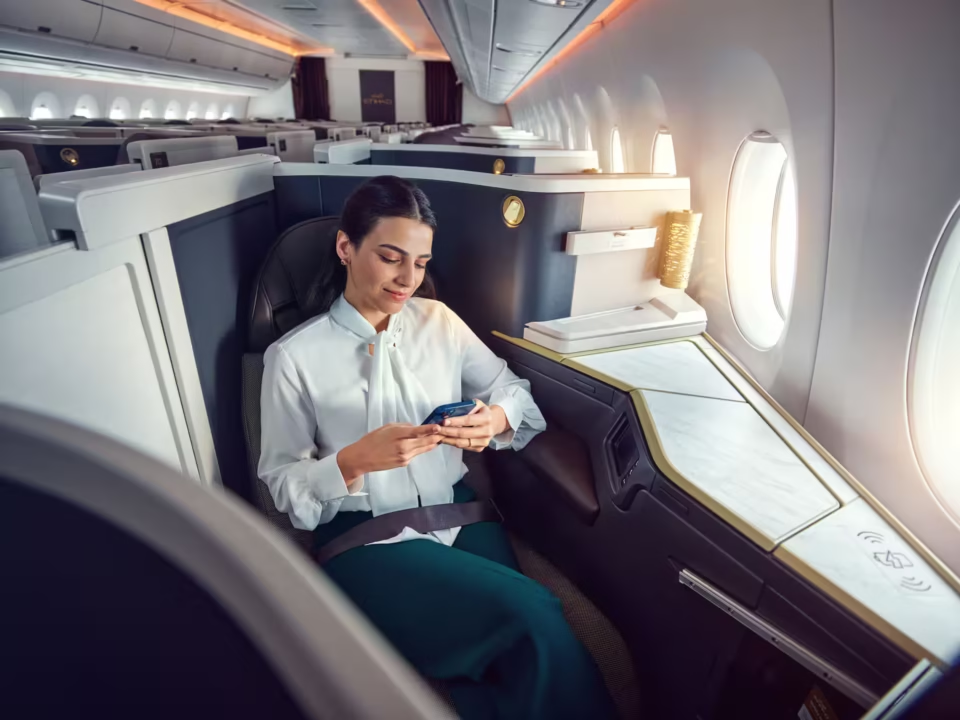Travelling long-haul to or from the Middle East can be an exciting adventure and the region’s top airlines and airports are renowned for luxury and hospitality, but a journey of over seven hours can wreak havoc on the body so it requires some savvy planning.
Here are some tips to help you fly smarter and more comfortably on long-haul routes. As well as some of the unique long-haul options that MENA airlines provide.

Strategic seat selections
When booking or checking in, put thought into your seat selection. Want to sleep with minimal disturbance? Choose a window seat so you can lean against the wall and won’t be bumped by passersby (and you control the window shade). Need easy access to the aisle (for stretching or bathroom trips)? Then go for an aisle seat. If you’re tall, try to snag an exit row or bulkhead seat for extra legroom, many MENA airlines allow paid seat upgrades to those at booking.
The middle seat hack
Consider the back of the plane trick and the middle seat hack doing the rounds on TikTok. Flights to the Middle East are not always completely full, and if you sit toward the rear, you might find empty adjacent seats. Being one of the last to deplane might be worth it if you get a whole row to lie down on! Some travellers are also deliberately picking a middle section near the back and hope that it stays lightly booked, allowing them to stretch out. Of course, there are no guarantees, but it can pay off.
Book early
Booking early generally gives you more choice of seats, the best ones (like upper deck window seats on an Emirates A380 or Qsuite middle pairs for couples on Qatar) go quickly. Use tools like SeatGuru to see seat maps and read reviews (for example, avoid seats near toilets, or the very last row if it doesn’t recline).
If traveling as a pair in economy, some aircraft have two-seats by the window in the rear sections (like Qatar’s 777 or some Emirates 777 layouts) those are great for couples. In short, a little research and early selection can greatly enhance your comfort on a long-haul flight.
Get loyalty perks
Whether you’re a frequent traveller or not, it pays to join the loyalty programs of Middle Eastern airlines before your flight. Many MENA carriers are part of global alliances or have unique partnerships for instance, Qatar Airways is in oneworld (so your Qmiles or Avios can be used on other airlines like American and British Airways), and Saudia is in SkyTeam. By accumulating miles on a long-haul, you could earn an upgrade or free flight down the line. But beyond future miles, there are immediate perks: members often get benefits like free Wi-Fi messaging or extra baggage. Joining is free, so register your frequent flyer number in the booking and reap the rewards.

MENA’s amenity kits are second to none
One of the benefits of flying long-haul on MENA airlines is the little extras they provide, even in economy class. On overnight flights or longer routes, many airlines hand out free amenity kits, these typically include items like an eye mask, socks, toothbrush and toothpaste, earplugs, and sometimes a small pouch. But in MENA these amenity kits tend to go above and beyond. In premium classes the luxury for long-haul ramps up with luxury toiletries, pajamas, and even onboard showers on the Emirates A380 First Class.
Don’t forget to hydrate and fuel properly
The desert climate of the Middle East combined with the dry air of airplanes can really dehydrate you, which worsens jet lag and fatigue. Drink water regularly throughout your flight. Bring an empty reusable water bottle and fill it at airport fountains or ask crew to refill it so you always have water handy. Avoid excessive caffeine on the plane and instead sip water or juice frequently.
Also, eat light. Overeating can make you feel bloated and uncomfortable on a long haul. If you’re prone to indigestion, carry some healthy snacks like nuts or dried fruit to munch on instead of a second heavy meal. And remember, in some transit airports during Ramadan, restaurants may have limited daytime service, so plan meal timing accordingly. Keeping your body well-hydrated and fed with moderate portions will help you feel much better when you land.
The airline matters
Choose reputable Middle Eastern airlines for comfort and quality. Not all long-haul flights are created equal, carriers like Emirates, Qatar Airways, and Etihad Airways consistently rank among the world’s best for service and comfort. For instance, Qatar Airways was named the World’s Best Airline in 2025. These airlines offer newer planes, spacious cabins, and excellent amenities. Opting for one of the big MENA carriers can make even a 12-hour flight feel more manageable due to their top-notch entertainment, meals, and hospitality.
Don’t forget to stretch

Long-haul flights mean long periods of sitting, which isn’t great for circulation or muscle stiffness. Make it a point to stretch and walk periodically during your flight. Every few hours (when the aisle is clear), get up and take a short walk up and down the cabin. Doing some simple stretches near your seat like ankle rolls, neck stretches, and reaching your arms up all help prevent that dreaded post-flight soreness and more seriously reduces the risk of blood clots.
Pre-plan your time zones
Jet lag can be a real challenge on MENA routes, especially if you’re crossing multiple time zones, and it can eat into your trip. Frequent flyers adjust their schedule gradually in the lead up to the flight. A few days before travel, shift your sleep and meal times closer to that of your destination if possible (even an hour a day helps). The general consensus is, if you’re flying on a redeye (overnight) then arrive at the airport tired and ready to sleep on your flight. If you’re flying during the day, make sure you’re well rested so you don’t crash mid-flight.
Long-haul flights are part art, part science, and it’s all about planning as much as you can in advance. Just remember to use all of the hospitality MENA airlines have to offer to make the most of your long-haul experience.



